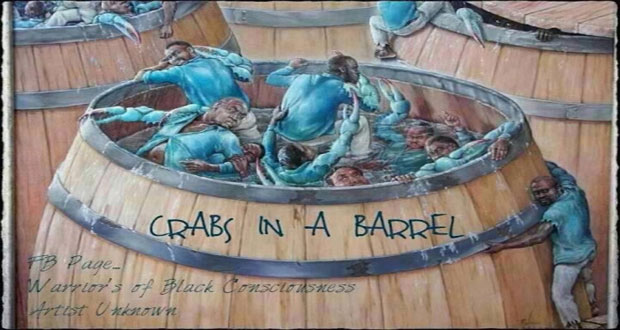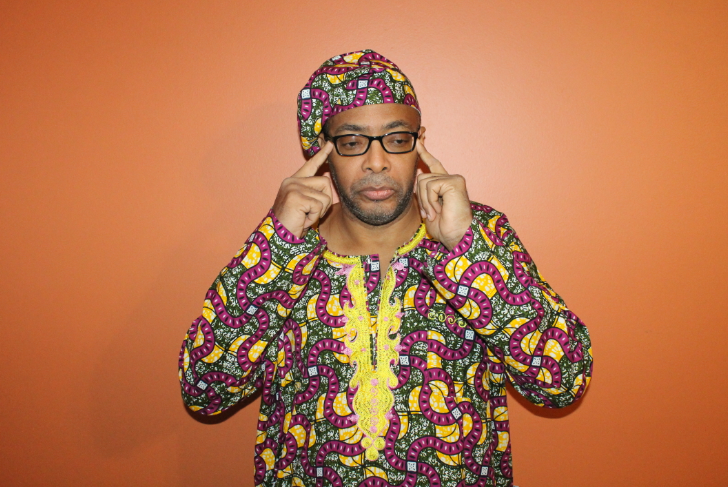
Twenty4Seven Magazine Interview: Balogun Ojetade
“Blacktastic” Author, Priest and Martial Artist.
Words + Interview by Corletha Norman, MSW, LCSW.
The following is the full interview with IFA Priest, Obatala Priest, Afrikan Martial Arts instructor, author, game creator, and co-creator of Blacktasticon Balogun Ojetade. We spoke about IFA, mental health, Afrikan Martial Arts, Black Science Fiction and his many works as an author and game creator. His books and games can be found on Amazon. .
Balogun Ojetade, tell the readers a little bit about yourself.
My name is Balogun Ojetade. I have been training [in martial arts], it will be 47 years in April. I have been teaching for 32 years. I am an IFA Priest, a Priest of Obatala, a student of IFA and just a student in general. I write science fiction and fantasy, martial arts and martial arts non-fiction books. Just recently created a game. I write game books, so like the old choose your own adventure type of books. Choose your own adventure with combat systems, so you roll dice. I also create role playing games. Some people have heard of Dungeons and Dragons. I created a game with a friend of mine Milton Davis, [who is] another author, called Ki Khanga; the Sword and Soul Role Playing Game. I created a game of my own called Steamfunkateers, the Steamfunk Role Playing Game.”
For those that are not familiar with it, how would you explain or define IFA?
IFA is a spiritual tradition, culture, and lifestyle originating with the Yoruba people. It includes a system of divination, of spiritual offerings, of protective medicines and herbs to enhance a person’s life. Most of all IFA is a study of the mind. There are three levels of mind when we are talking about IFA. There is Ori, which is your physical head/mind; Ori Inu, which is your perfect self that knows no doubt and has no fear. That’s your inner self. Then Ipori, which is your higher self. Your [higher self is the] self that is still connected to the creator or the source.”
How would you say that IFA has enriched your life personally?
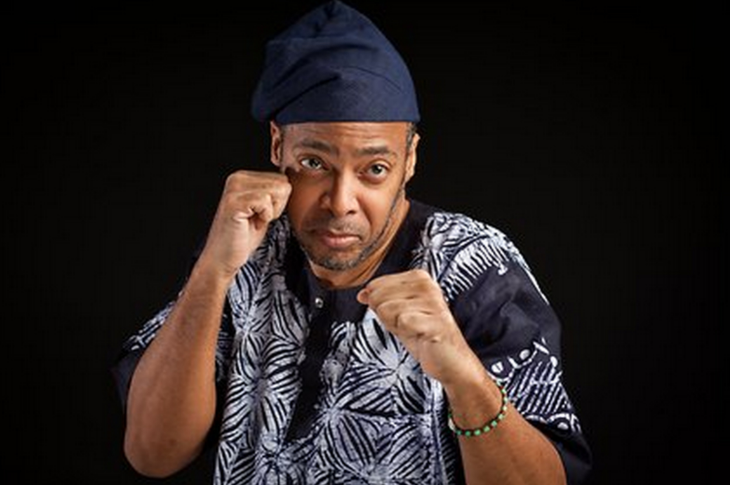
Well one, it’s introduced me to different people from different backgrounds all over the world. It’s made me know myself. So you learn your Ori, yourself. It’s your destiny. So I have been put in alignment with my destiny. So for me, I gained more knowledge, wisdom, and understanding. As a person that loves to learn, that is perfect for me. From it I met my wife, my children. I have eight children. They all practice IFA. It’s put everybody in line with their destiny, so I’m happy that my family has been able to learn themselves as well.”
So you grew up in Chicago. What area?
“I grew up on the Westside of Chicago in an area called South Lawndale. That’s considered the roughest and poorest side of Chicago. I never realized that we were on the poorest side because I never really wanted for anything.”
How do you feel that your experience growing up in Chicago has contributed to who you are as a man now?
“Well it’s made me more cautious. I’m much more aware of my environment. I have a stronger situational awareness because of it. If you’re caught sleeping in Chicago where I grew up, you would end up a victim. That has made me a better warrior. As far as culturally, I have a broad experience with food. It’s a food town. I was heavily into different types of foods. I am able to introduce people to the best Thai foods, the best pizza, the best Mexican foods; because I have experienced all of that from Chicago. The Taste of Chicago started the different Tastes. The Taste of New York, The Taste of Atlanta; it all started in Chicago with the Taste of Chicago. There are so many restaurants that are legendary, if you will, there. So that’s a big thing for me; the food culture from Chicago.”
“The martial arts culture is stronger; probably there than anywhere else. You have a strong martial arts culture in New York. In Chicago we would all…it didn’t matter what system you studied. We would all go to each other’s schools and sit on each other’s testing boards. The students respected us even though they had no clue what our system was. I’m an Afrikan Martial Arts practitioner. One of my closest friends, Stan McKinney, teaches Kenpo and Goju-Ryu. I would sit on his testing board and test his students, and he would test mine.”V
It is a pretty well noted statistic that there is a lot of gang and gun violence in Chicago. Was this a part of your experience growing up in Chicago?
“Yes. That is a part of anyone’s experience that grew up in Chicago from 1949 onward. When I was in Chicago, we grew up in certain neighborhoods. We would call them by the gangs. So I grew up in a Vice Lord neighborhood. In Chicago there were 15,000 Vice Lords when I was there and about 16,000 Gangster Disciples. There were other gangs. Four Corner Hustlers, Latin Kings, Latin Counts, and you have two stars they are under. You have the Five Point Star or the Six Point Star. So under the Five Point Star you have Vice Lords; Latin Kings; Gaylords, which is a Caucasian gang; and Four Corner Hustlers. They were all under the Five Point [Star]. Then under the Six Point [Star] Gangster Disciples; Latin Counts, which I think are under the Five Point Star now; and Black Gangsters. They were all under the Six Point [Star].”
What brought you to the Atlanta area?
“Well a friend of mine was trying to get me to move here for years, to come and help him build his martial arts school. He’s originally from Chicago. I felt Atlanta was too slow for me. I had been here several times and wouldn’t move here. I caught pneumonia in 1999, February of 1999. I was in the hospital and something came to me, spirit came to me and said move to Atlanta. That’s what brought me here. I said I’m going to follow spirit. It’s time. I moved here in ’99, been here since. This is my twentieth year here.”
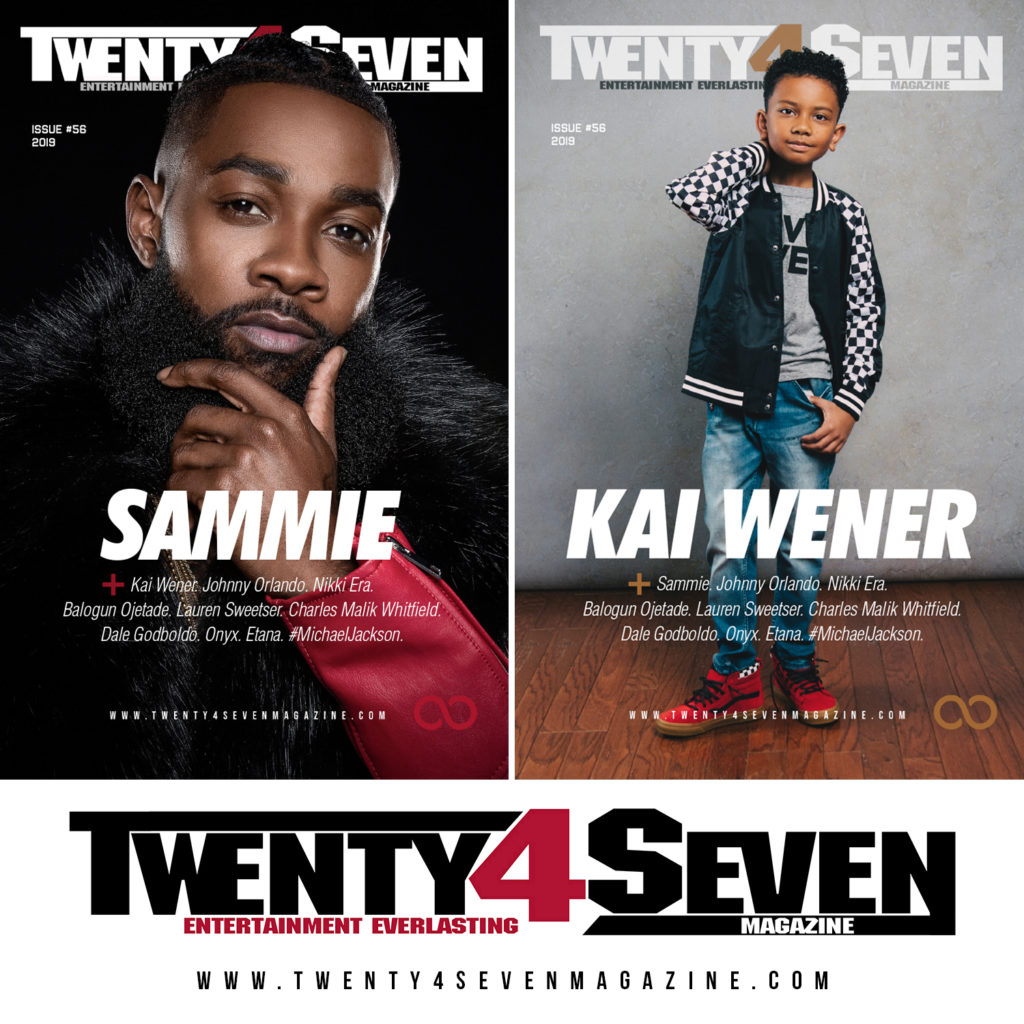
Do you feel that your move to Atlanta should have happened sooner?
“Absolutely not. If it happened sooner, I probably would not have met my wife. I would have been out here, depending on how soon, I would have been out here crazy as heck. Macking down a bunch of sisters; but I moved down here at the right time. Definitely moved down here at the right time for me.”M
Why is mental health in the Black community important?
“Anybody who has been around me for any length of time has heard me say, that I feel like all black people in the diaspora have some mental issues: because we are outside of our natural, cultural environment; even outside of our natural, physical environment. We have suffered up under white supremacy, up under colonization, our enslavement and we are still dealing with those scars. For me, I don’t say okay, if a brother tries to rob me the white man is to blame. That brother is to blame, but [the white man] is certainly responsible; because he set up the conditions that make it necessary in [the robber’s] mind that he has to do that. So he’s been sickened by the conditions that we live under.”
“Our associations with our women. Our sister’s association with men. All of that is rooted in things that we have, in my opinion, things that we’ve suffered. We’re all in need of healing throughout the diaspora, and in Africa itself, because we are all up under colonization. We have all been under the boot heel of an oppressive supremacist.”
What do you think is one of the major determinants that will push more black men to seek therapy?
“Education. We are ignorant of therapy because we have been taught you just need to tough it out. I think we need to be educated that that’s not enough. That we have to come to the realization that nothing has worked for us, so why not try therapy?”A
You have a very extensive repertoire of published writings as a science fiction author. What influenced your position as an author in this genre of literature?
“My mother is a big fan of the Wild Wild West television show Get Smart, which is a show about these super spies. It’s a comedy show. I grew up at her feet watching that. So I always knew that I wanted to write something like the Wild Wild West, but with black folks. Then when I began to read, I started reading at two. My sisters gave me comic books. So the visual, with the action, plus the words. They gave me the books, sound it out. They taught me how to sound out words. Then any words I didn’t know, I would ask them and then they would have me write it down.”
“So I learned to write and read at two. I would write it down to the best of my ability at two, and I would recite. So they would tell me this means this and this means that. So I’m reciting it over and over, then I would write it down. They started teaching me my ABC’s and I’m copying what I would see in the book. That developed in me a love for comic books. As I learned to read better, I wanted more comic books. They were giving me Thor, Fantastic Four, Spiderman. So I got into that, didn’t see myself though. So I always wanted science fiction, but with somebody that looked like me in it.”
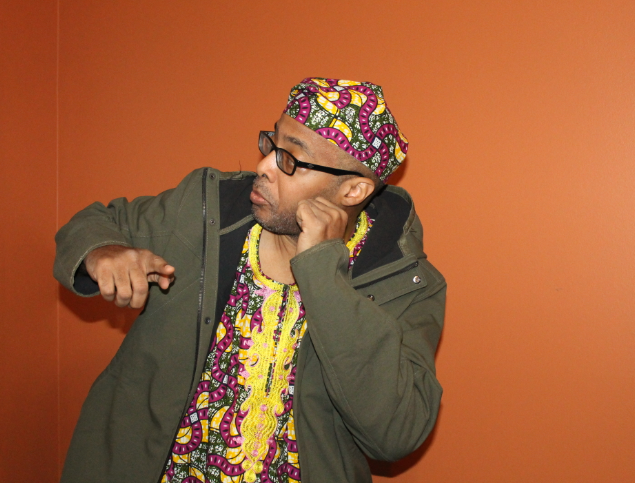
“That’s what lead me to writing it. I figured white folks wasn’t going to write it, so I’m going to write it. My parents have always been people, ‘well if you say you want to do that, do it. Do it. Be the best at it though.’ So I have learned to write everything. Not just fiction but non-fiction, journalism; whatever within fiction from satire, to spoofs, to horror, to science fiction and fantasy, to romance. Whatever it is, I learned to write it because I was determined that I was going to master the art of writing period. That, was from the influence of my parents telling me ‘that’s how you should do it if you are going to do it at all.”
Do you have any projects that you are currently working on that you would like to tell us about?
“Yes. Right now I just brought out Steamfunkateers, the Steamfunk Role Playing Game. Which I think is right now probably, the best game out on the market. It’s the best video game you could ever read, is what I tell people. That’s completed. That’s out. I’m also working on the Ice Cold Carter comic book. I call it a photographic novel. A graphic novel is like a comic book that is thick. It tells a whole story. It is the length of a novel. It’s graphic. It has the art in it like a comic book. This has comic book art, but done with photography. Then the photographer. I’m dealing with one of the best photographers in the world, Kecia Stovall. She has manipulated the photos to look like art, to look like illustrations. So when you read it, it’s like you are looking at a drawing book, but it also has the realness to it because it is. We had models posing for it. It’s funny.”
“It’s a fantasy story about this character named Ice Cold Carter. We did a commercial with Ice Cold Carter for my martial arts school, where he goes to different schools and beats up the instructor. He comes to the Afrikan Martial Arts Institute with his muscle, goes in and then he comes out in a wheel chair all beat up. You find out he’s beat up by one of the little girls in the school. From that people loved the commercial. The commercial went viral. From that we decided I’m going to do more of that. Then we decided we are going to make it a feature in a film. First, let’s make a comic book out of it, because 70% of films are made from comic books or graphic novels now. And so we said let’s do the comic book. Introduce people to Ice Cold Carter even deeper, and let them have fun with the comic book. Then from there we make a film.”
“I’m also a filmmaker. I’m right now, about to finish up The Tao of Ice Cold Carter to go along with the comic book. That is an instructional martial arts book, but with Ice Cold Carter as the host. He’s co-writing it with me. There’s some funny antidotes in there and our real techniques, but from funny scenarios. [In] one, there’s a birthday party. Bruno Mars is the person singing at the birthday party, but they need a back ground dancer. One of Ice Cold Carter’s students messes up and instead of ordering a dancer, he gets a clown. The clown is upset that he is not the star of the show, and from there a fight breaks out. I show the techniques against the clown. So different stuff like that because, Ice Cold Carter is a straight spoof and crazy. So we have all kinds of crazy scenarios, but the techniques can actually be used by a person to defend their life. That is coming out, probably before the comic book because I’m done writing that. We just have to do the photography for that to bring that out.”
Tell us about your ventures with Blacktasticon. What is it? How did that come to fruition?
“Blacktasticon is a fan convention. We started in 2016. Me and Milton Davis had a conversation and said we wanted to do a Con, a convention, where all of these people would come together. Different authors. So in 2016 we did it at the Southwest Arts Center. We expected 250 people. We got 508 not counting the vendors, different panelists and celebrities. So that went very well. We decided we are going to do it every two years. People want it every year, but we are both authors. I do three things like I said; really four things if you add the film. I’m really a little too busy to do it every year. Milton is also, besides an author, a Chemist. So we said every two years. So in 2018, we did it again. This time a Georgia Tech. A lot bigger. We had the same amount of, well really a little larger of a crowd at Georgia Tech. The 600 people we had looked like it wasn’t as many, but we actually had more people. It was a much bigger convention.”
“We’re probably going to go back to Georgia Tech, because they want us again; but this time were going to try to get upwards of 1000 people to come. That’ll be 2020. In between we are doing different events. Right now it’s hot to do it because of what’s called the ‘Black Panther Effect’. The Black Panther movie came out 2018, and now people are clamoring for different stuff with Afrofuturism. You know black speculative fiction. I normally stop doing conventions, other than my own, going to them. I do a couple of black conventions. Since Steamfunkateers has come out, everybody wants me at these different conventions again. So I’ll be doing about 5 or 6 conventions this year. Like last year, I only did my own. That was it. The events that I threw and the events that other people I am close to, other black writers; I went to their events. Other than that I didn’t. This year I’ll be back out there again, because I’m presenting and running the game for different people to play at different conventions.”
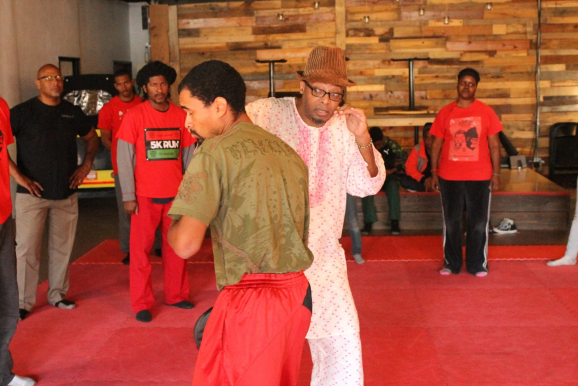
So you are also an Afrikan Martial Arts instructor. How does Afrikan Martial Arts differ from other forms of Martial Arts?
“I always tell people the difference between Afrikan Martial Arts and Asian Martial Arts is like the difference between Asian dance and Afrikan dance. They’re like night and day. People look and say; it’s funny. They’ll say well that looks like Brazilian Jujitsu, that looks like Ween Chun, that looks like Koli, that looks like Judo, that looks like Greco Roman Wrestling, that looks like Boxing. How can that art look like all of those things right? Well no other art can look like all of these arts. So how is it possible that we get compared to so many things? Could it be that the Afrikan Martial Arts are the mother and father of all martial arts?”
“It’s only so many ways that a human being can move. We got two arms, two legs, one head. So it’s only so many ways we can move. There are an infinite number of variations. There are an infinite number of principles and philosophies in that; that will have you apply your martial arts a different way. So the only way you can tell the difference between a martial art really, is to feel it. Now I know Bruce Lee said ‘a punch is a punch a kick is a kick.’ I can say a dog is a dog, but a Rottweiler and a Chihuahua have a different bite. Afrikan Martial Arts is the Rottweiler.”
“I’m not saying that because I teach it. I have studied other martial arts. Like my father said, ‘go and study them all. It is always going to get you back to the Afrikan Martial Arts because you’re always going to see a deficit in these other martial arts.’ You’re going to say well shoot, I could do this. This is missing this. The Afrikan Martial Arts isn’t missing anything. That doesn’t make us better, it’s just Afrikan Martial Arts has been around for tens of thousands of years; when other things have been around maybe, six thousand at the most. Two thousand, you know? So we’ve been around longer and able to fill in all of the little holes; get rid of that which we don’t need. So it’s more efficient and more effective because we’ve had more time to figure that out.”
If a person wanted to come to a class, what would they need to do to prepare? When and where are the classes held?
“They have to be, number one black, and ready. Black and ready. That’s the main thing that they need. Then they would come to our martial arts school, The Afrikan Martial Arts Institute. We are in Atlanta. We have branches in Atlanta, Ghana. If you’re in Atlanta, you come to 9 Gammon Street starting February 10th. Our hours on Sundays are from 2:00pm -4:00pm and on Mondays from 7:00pm to 9:00pm. We train in what’s called cyclic phases. So in Afrikan martial traditions, there’s no belt system. You learn this based on you’re at this belt. We don’t have that. Or you learn this because you have been training this long. We don’t have that. You come in while we are learning double knives, you learn double knives. Now will you be as skilled as someone that’s been training with me for fifteen years? No. They understand the principles better, but that may be the first time that they…”
“So a couple of years ago I taught spear and shield. That was the first time anybody picked it up. One of my students that has been around for six years grasped the principles quicker, because the principals stand no matter what is in your hands. You’re the weapon. These other things are just tools. Then somebody that’s been around for a year, it took them longer to get the technical aspects. You’re learning the same, but come around the end of that phase, everybody is moving the same. Phases can last anywhere from three months to a year, depending on what I’m teaching.”
“Right now I’m teaching double sword. That is a yearlong phase because there is a lot that goes [into it]. It’s not just double sword. We call it the whole shebang. If you lose your swords, you have to be able to deal with things empty handed from all phases: from standing to the ground, clench, everything. It’s really a full combative phase. People say well, I’m not going to be carrying a double sword out on the street. Well you might be carrying an umbrella. You may have a cane if you’re older or injured. You can use that the same way that you use a sword. When you put the swords down, your hands are much quicker. You’re definitely going to move quicker because you don’t want to get hit by that sword. We use polymer or wooden swords. You don’t want to get hit by that. When you put that down your hands are a lot quicker, and you’re a lot more coordinated. That’s the main thing for this modern age, but also learning the double swords is a part of the culture. So whenever you see an Ogun statue, Ogun is holding two swords. So you have to learn that to learn Ogun and who Ogun is.”
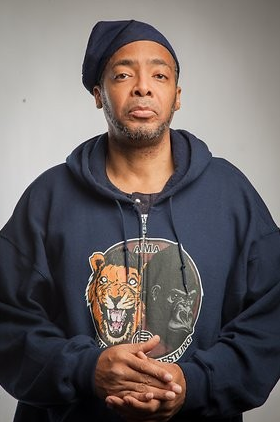
What other projects or ventures do you have your hands in?
“Anything that comes to my mind, I make it happen. Right now I’m working on anime. A friend of mine wrote a novel called From Here to Timbuktu. We’re doing an animated series for From Here to Timbuktu. I’m the script writer for that. We’re working on a video game that I can’t really talk about right now, because that’s in the contractual phase. Once that’s done we’re bringing out a video game based on our role playing game Ki Khanga and working on a virtual reality game with this virtual reality company based on one of our intellectual properties called The City.”
How do you balance wearing so many hats?
“[I’ve] been doing it all my life so I’ve learned to juggle like that. Even as a little boy; I was in school, but I was also teaching martial arts. So I had to learn to do those two. Then I started teaching martial arts, running track, and maintaining a 4.0 grade point average to get a scholarship. So go from running track, to being a track star with Olympic times, to being a master level instructor at the same time, while in college, maintaining my gpa, and part of a writing group. I just always learned to juggle time really well. Then I became a father at 19 also, so I had to juggle that. You know, spending time with my oldest daughter.”
“As time went on: getting married, spending time with the wife, children, martial arts, my career when I went to the military, even then always writing short stories, comic books. I just learned to juggle time to this day. I got babies, grand babies. I got children that range from ten years old up to thirty. I’m married, I got four grandchildren, I have several martial arts students, 12 of whom are instructors under me that I have to manage, IFA Priests, I have an Ile of about 30 people, so I’m divining, giving advice. So there’s a lot. Plus my writing for myself and writing with other people. Some people say so do you sleep? Got to add that in too. Sometimes I don’t know how I do it, but I do it. I have only taken one vacation. I wouldn’t recommend everyone do it like that. I’ve only taken one vacation, and I’m 50 years old. Two vacations in my 50 years. I’ve been out of town, but that was work.”
Do you have any last words for us?
“Anything you put your mind to, you can do it. Do what makes you happy because that will keep you sane. I work for myself. I’ve been working for myself since I was 30 years old; so for 20 years. If I was working for somebody else, I wouldn’t be able to do all that I do. I wouldn’t be doing what I love, and I think it would cost me my mental faculties.”
No Comments
Leave a reply
You must be logged in to post a comment.

